Securing Business Funding with Bad Credit in 2024
By Sarah Helton
Lets Get Started
Obtaining financing can be a pivotal step for small business owners looking to scale their ventures. However, for those with less-than-stellar credit scores, navigating the realm of business funding can feel daunting. Thankfully, even with bad credit, options exist to fuel your business aspirations. In this guide, we’ll explore strategies, insights, and viable funding solutions tailored for entrepreneurs without good credit histories.
Understanding the 2024 Business Financing Landscape
Before delving into specific avenues for acquiring funding with poor credit, it’s crucial to grasp the current terrain of business financing and you might be surprised to learn that small business administration loans are probably not the best solution. The market is teeming with diverse options ranging from small business loans to innovative solutions like Merchant Cash Advances (MCAs). Each avenue comes with its unique terms, FICO score criteria, qualifying eligibility guidelines, and repayment structures. Amidst this plethora of choices, small business owners with bad credit must navigate strategically to secure the funding they need.
Exploring Loan Options for Bad Credit Borrowers
Loan Options for Entrepreneurs with Bad Credit
For entrepreneurs with low credit scores, accessing loans from banks or financial institutions might pose challenges. These institutions typically prioritize creditworthiness and require a minimum credit score when making loan offers. However, alternative funders have emerged as beacons of hope for small business owners with bad credit. With this type of financing, providers often consider factors beyond credit scores, such as annual revenue or monthly revenue and cash flow, in their evaluation process.
Term Loans: A Viable Option for Long-Term Growth
Term loans provide a lump sum amount that borrowers repay over a fixed term with interest. While banks may have stringent business requirements and credit score requirements, online lenders and alternative financing providers are more lenient, making term loans accessible to entrepreneurs with bad credit scores. However, it’s essential to scrutinize interest rates and repayment terms, as they may vary based on creditworthiness.
Merchant Cash Advances: A Swift Solution for Immediate Needs
Merchant Cash Advances (MCAs), often thought of as short-term loans, working capital loans or bad credit business loans, are actually not loans at all. This alternative funding solution has gained popularity among small business owners, especially those with bad credit. Unlike loans, MCAs offer a lump sum upfront, which businesses repay through a percentage of their daily revenue on future sales. This flexible repayment* structure aligns with the fluctuating cash flow of businesses, making MCAs an attractive option for those with unpredictable revenue streams or imperfect credit histories. These are a great short-term solution. Moreover, MCAs often fund the same day you apply.
Navigating the Application Process with Bad Credit
Understanding Credit Score Requirements
While business lenders may impose stringent minimum credit score requirements, alternative funders often have more flexible criteria. Entrepreneurs with credit scores as low as 500 or even lower may still qualify for certain financing options like MCAs. However, it’s essential to be transparent about your credit history during the application process and explore funders who specialize in working with business owners with bad credit.
Showcasing Business Revenue and Cash Flow
When applying for funding with bad credit, demonstrating a strong business revenue by showcasing your business bank account statements and cash flow can bolster your eligibility far more than what credit bureaus report through a credit check. Funders often prioritize a business’s ability to generate consistent income over personal credit scores. Providing detailed financial statements, including bank statements and sales records, can strengthen your case and increase your chances of approval.
Utilizing Collateral or Personal Guarantees
In some cases, offering collateral or personal guarantees can mitigate the risk for lenders, thus improving your chances of securing funding. While loans may require tangible assets as collateral, alternative funders do not require real estate collateral. It’s essential to weigh the risks carefully and ensure that you can meet the repayment obligations to avoid potential loss.
The Advantages of Merchant Cash Advances
Flexibility in Repayment Terms
One of the primary advantages of MCAs is their flexible repayment structure. Instead of fixed monthly payments, borrowers repay the advance through a percentage of their revenue. During slow periods, when revenue decreases, the repayment amount also adjusts accordingly, easing the financial burden on businesses with fluctuating cash flow.
No Real Estate Collateral Required
Unlike loans that may require real estate or substantial assets as collateral, MCAs are unsecured, meaning they don’t necessitate collateral. This aspect makes MCAs particularly appealing to small business owners who may not possess significant assets or real estate to pledge as security.
Fast Funding Process
In the fast-paced world of entrepreneurship, timing is often critical. MCAs offer a swift funding solution, with funds typically disbursed within a single business day. This expedited process allows entrepreneurs to seize opportunities, address urgent business needs, or navigate unforeseen challenges without delay.
Navigating the Pitfalls: Understanding Interest Rates, Factor Rates, and Fees
Assess the Cost of Borrowing
While MCAs offer accessibility and flexibility, it’s essential to carefully evaluate the associated costs. Instead of interest rates, MCAs utilize a factor rate, which represents the total repayment amount as a multiple of the advance. While this simplifies the calculation, borrowers must scrutinize the factor rate to understand the total cost of borrowing accurately.
Consider High Interest Rates
If you are still considering a SBA loan, remember, due to the perceived risk associated with bad credit borrowers, banks may charge higher interest rates. Entrepreneurs must weigh the benefits of accessibility and speed against the potentially higher cost of borrowing. In some cases, alternative funders may offer more competitive rates, so it’s crucial to compare options and negotiate terms whenever possible.
Small Business Loans: Catering to Long-Term Growth
For entrepreneurs eyeing substantial capital infusion, small business loans remain a viable choice. These loans typically offer higher loan amounts, ranging from $50,000 to several million dollars, depending on the lender and the borrower’s creditworthiness. With fixed repayment terms spanning several years, these loans are ideal for businesses seeking long-term investment to fuel expansion initiatives or finance significant projects.
Exploring Startup Business Loans: Nurturing Entrepreneurial Ventures
Startups, often faced with the challenge of limited credit history, can turn to specialized startup business loans tailored to their unique needs. While loan amounts may vary depending on factors such as business plan viability and projected revenue, these loans typically range from $10,000 to $500,000. Designed to provide initial capital for launching operations or scaling early-stage ventures, startup business loans offer flexible terms and competitive interest rates, empowering entrepreneurs to turn their innovative ideas into reality.
Unlocking the Potential of Invoice Factoring: Leveraging Accounts Receivable for Cash Flow
For businesses grappling with cash flow challenges or unpaid invoices, invoice factoring presents a strategic financing solution. Rather than waiting for clients to settle outstanding invoices, businesses can sell their accounts receivable to a factoring company at a discount, receiving an immediate cash infusion. While loan amounts are contingent on the value of outstanding invoices, businesses can typically access funding equivalent to a percentage of their accounts receivable, providing a much-needed boost to working capital.
Harnessing the Power of Microloans: Empowering Small-Scale Enterprises
Microloans cater to the unique needs of small businesses and startups, offering modest loan amounts typically ranging from $500 to $50,000. Characterized by streamlined application processes and expedited funding, microloans serve as a lifeline for entrepreneurs navigating the early stages of business development. With lenient eligibility requirements and favorable terms, including low-interest rates and flexible repayment schedules, microloans empower small-scale enterprises to access the capital they need to thrive.
Navigating the Application Process: Meeting Eligibility Requirements and Securing Approval
Regardless of the funding option you pursue, navigating the application process requires meticulous preparation and attention to detail. From compiling essential documents such as business plans, financial statements, and credit reports to meeting specific eligibility criteria outlined by lenders, thorough preparation is key to securing approval. By demonstrating creditworthiness, showcasing a solid business plan, and aligning your funding needs with the appropriate financing option, you can increase your chances of success in securing the capital necessary to fuel your business growth.
Consider Options Beyond Loans and Alternative Financing
For entrepreneurs grappling with bad credit, exploring alternative financing avenues such as invoice financing, business grants, crowdfunding, or equipment financing might prove more fruitful than relying on a business line of credit or loan. While credit cards offer immediate access to funds, they may not be the most strategic solution for long-term business needs. Evaluating these diverse options could unveil tailored pathways to financial stability and expansion, ensuring that credit setbacks don’t impede entrepreneurial ambitions.
Conclusion: Empowering Entrepreneurs with Bad Credit
In the ever-evolving landscape of business financing, entrepreneurs with bad credit no longer face insurmountable barriers to securing funding. From traditional term loans to innovative solutions like Merchant Cash Advances, a myriad of options exists to fuel your entrepreneurial journey. By understanding your business needs, showcasing strong revenue streams, and exploring alternative lenders, you can navigate the realm of business funding with confidence, regardless of your credit score. Remember, with perseverance and strategic planning, your business aspirations can transcend the constraints of bad credit, paving the way for growth and success in 2024 and beyond.
*Repayment in this context describes the process of repurchasing a merchant cash advance. It does not describe the process of repaying a loan. MCAs are legally distinct from loan products.





